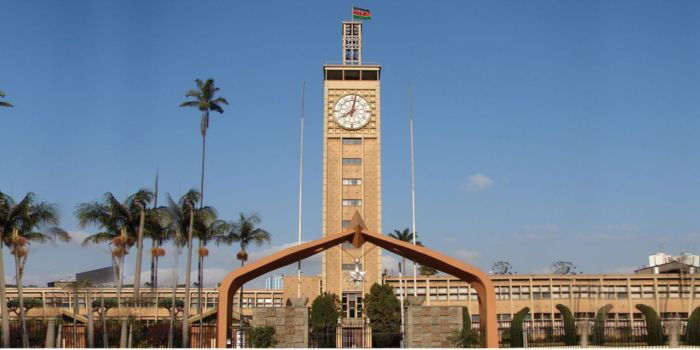Politicians across Kenya could soon face a big challenge if a new Bill before Parliament becomes law. The proposed law aims to stop the long-standing habit of leaders branding public roads with their names, photos, or campaign messages after completing construction or rehabilitation works.
This comes after Homa Bay Town MP Peter Kaluma introduced the Kenya Roads (Amendment) Bill, 2025, which seeks to outlaw the display of personal or political signage on public roads across the country.
The Bill, which has already passed the National Assembly and is now before the Senate, makes it an offense for anyone to erect or authorize the erection of signs showing their image, name, or likeness on public roads.
If approved, those found guilty could face a fine of up to Ksh1 million or a two-year jail term, or both. The proposed law mainly targets governors, MPs, and other political leaders who often use government-funded infrastructure projects to promote their political image or campaigns, even though the projects are fully financed by taxpayers.
According to the Bill, road signage will only be allowed to show the classification of the road and the level of government responsible for its management, but will not display any individual’s name, image, or symbol.
“The signage to be erected on any public road shall indicate the classification of the road and the level of government responsible for its management and shall not bear the name, image, or likeness of any person,” reads part of the Bill.
Roads Classification
The proposed law also directs that every public road, whether managed by the national or county government, must have proper signage clearly showing its classification. This means roads will be labeled to indicate whether they are national trunk roads or county roads, as well as the government agency in charge of them.
This measure is meant to enhance accountability and help citizens easily identify which level of government is responsible for maintaining specific roads.
Currently, Kenyan roads are managed by major agencies including the Kenya National Highways Authority (KeNHA), Kenya Urban Roads Authority (KURA), and the Kenya Rural Roads Authority (KeRRA).
Roads Structural Changes
Apart from signage regulations, the Bill also introduces major structural reforms in the management of Kenya’s road network. One of the most significant changes is the formal recognition of county roads, which will now be fully managed by county governments.
This includes their maintenance, rehabilitation, and development — responsibilities that have largely been handled by national agencies such as KeRRA and KURA.
However, the Cabinet Secretary for Roads will continue to have the power to classify and periodically review all public roads. The Bill further requires that such classifications be reviewed at least once every five years to ensure they match the country’s development goals and population growth.
The Cabinet Secretary will also be responsible for coordinating between the national and county governments to avoid duplication of work and to ensure uniform standards in road design, maintenance, and signage across Kenya.
More Powers to Counties
Under the new law, county governments will also gain more authority in road management. They will be responsible for overseeing road reserves, enforcing axle-load regulations, enhancing road safety, and collecting road-use data — roles that were previously carried out by KeNHA.
Road Levy Allocation
For years, counties have been pushing for a share of the Road Maintenance Levy Fund (RMLF) to be sent directly to them. The Bill seeks to amend the Kenya Roads Board Act to make this possible.
It proposes that five per cent of the fund be allocated directly to county governments to ensure they receive consistent and predictable funding for maintaining and improving county roads.
If the Kenya Roads (Amendment) Bill, 2025, becomes law, it will not only stop the misuse of public projects for political gain but also give more power and resources to county governments to manage their road infrastructure more efficiently.
The law aims to promote transparency, accountability, and uniformity in how public roads are maintained and presented across the country.
Join Government Official WhatsApp Channel To Stay Updated On time
https://whatsapp.com/channel/0029VaWT5gSGufImU8R0DO30


